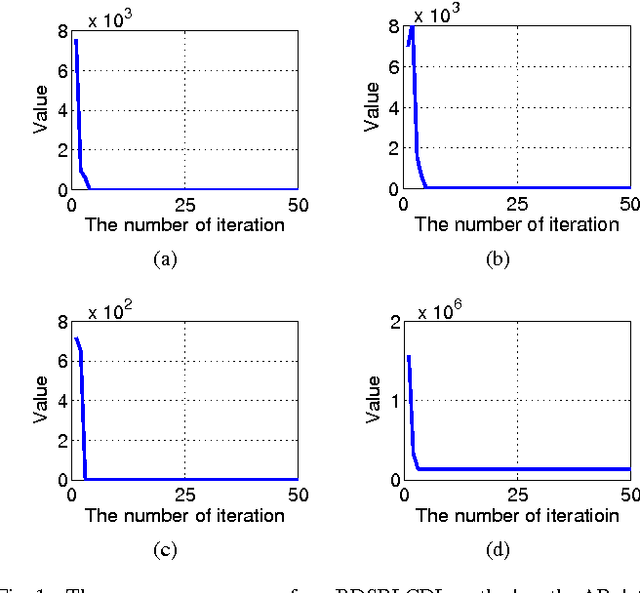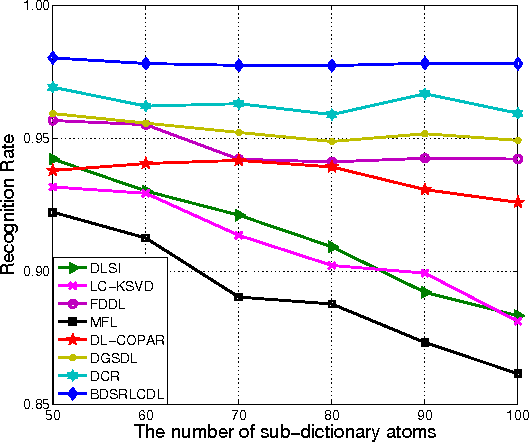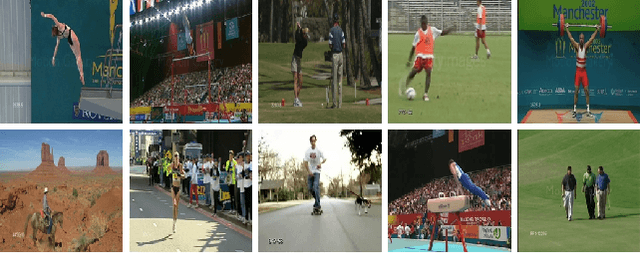Block-Diagonal Sparse Representation by Learning a Linear Combination Dictionary for Recognition
Paper and Code
Nov 28, 2016



In a sparse representation based recognition scheme, it is critical to learn a desired dictionary, aiming both good representational power and discriminative performance. In this paper, we propose a new dictionary learning model for recognition applications, in which three strategies are adopted to achieve these two objectives simultaneously. First, a block-diagonal constraint is introduced into the model to eliminate the correlation between classes and enhance the discriminative performance. Second, a low-rank term is adopted to model the coherence within classes for refining the sparse representation of each class. Finally, instead of using the conventional over-complete dictionary, a specific dictionary constructed from the linear combination of the training samples is proposed to enhance the representational power of the dictionary and to improve the robustness of the sparse representation model. The proposed method is tested on several public datasets. The experimental results show the method outperforms most state-of-the-art methods.
 Add to Chrome
Add to Chrome Add to Firefox
Add to Firefox Add to Edge
Add to Edge